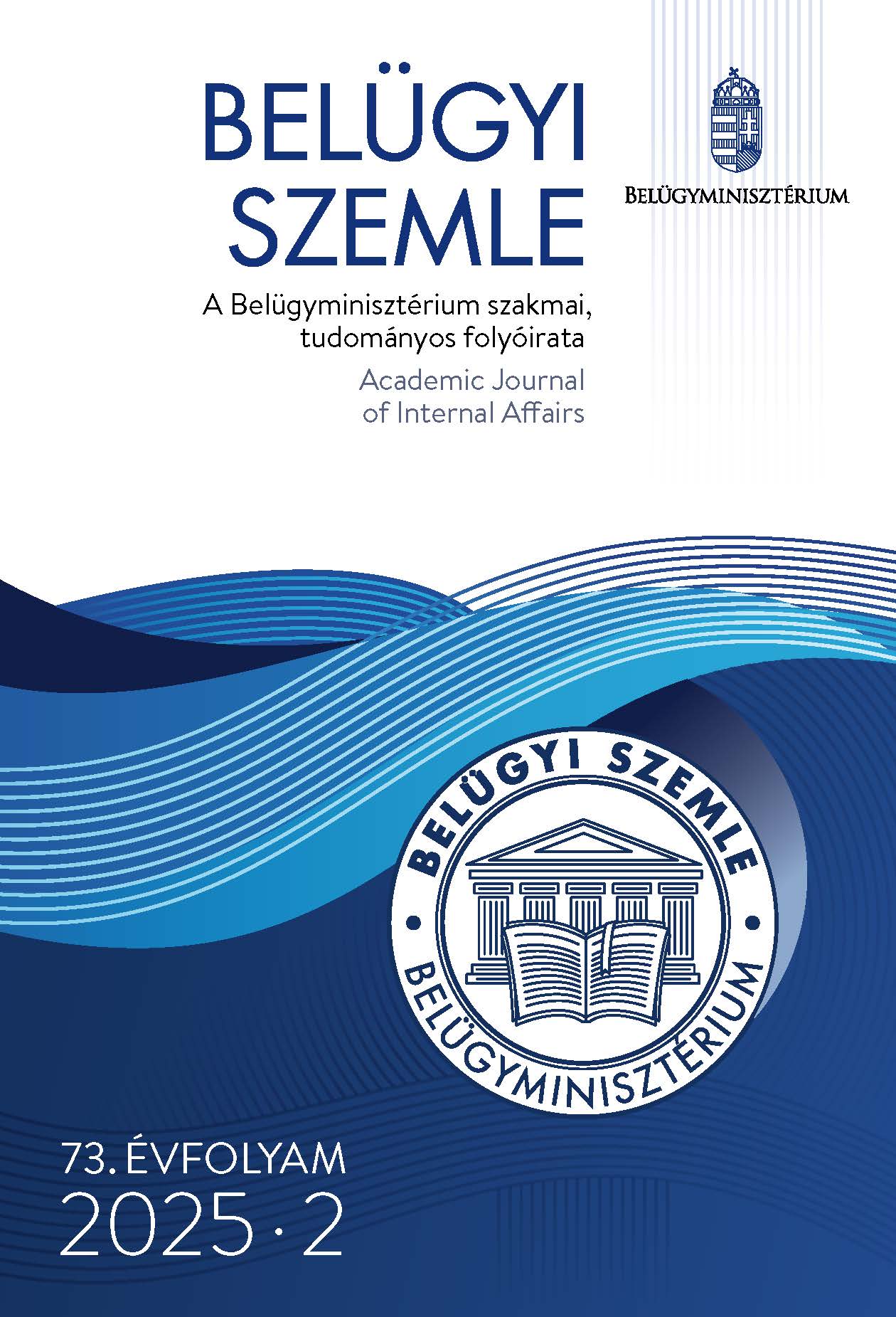Abstract
Aim: The aim of the research is to present the sentencing factors that are assessed in sentencing practice when a drug trafficking offence is established. Given that it is the material circumstances surrounding the offence that characterise the specific offence, factors relating to the person of the offender are not the subject of the study.
Methodology: I have drawn my conclusions by examining the reasoning of anonymous decisions published in the Collection of Court Decisions, using final decisions from domestic courts.
Findings: Act C of 2012 on the Criminal Code (hereinafter: Criminal Code) provides for a sentence of imprisonment of two to eight years for the basic offence of drug trafficking, and five to twenty years for the aggravated offence, and up to life imprisonment in some cases. When imposing these wide sentences, the court must also assess other mitigating and aggravating circumstances, in addition to the other sentencing factors. The practice of the domestic courts shows that, when imposing sentences, the factors that are typically relevant are the placing of the drug on the market, the quantity and type of drug, the drug consumption and the specific conduct of the offence.
Value: The article takes stock of the objective sentencing factors that the courts in our country assess when determining the offence in question. The study also points out discrepancies between the practice of the sentencing courts.
References
Angyal P. & Rácz Gy. (1937). A büntetés kiszabása bírói gyakorlatunkban: Az enyhítő és súlyosító körülmények rendszeres feldolgozásban.
Balogh Á. & Tóth M. (Szerk.). (2015). Magyar büntetőjog. Általános rész. Osiris Kiadó.
Baumgarten I. (1904). A büntetés kimérésének reformjáról. Franklin-Társulat.
Belovics E. & Polt P. (Szerk.). (2021). A Büntető Törvénykönyv kommentárja. HVG-ORAC.
Fázsi L. (2022). A büntetéskiszabás elvei bírói szemmel. Magyar Jog, 69(11), 625–641.
Földvári J. (1970). A büntetés tana. Közgazdasági és Jogi Könyvkiadó.
Fülöp Á., Grád A. & Müller M. (2000). Droggal és alkohollal összefüggő bűncselekmények. HVG-ORAC.
Gál I. L. (Szerk.). (2023). Magyar büntetőjog. Különös rész. Osiris Kiadó.
Györgyi K. (1984). Büntetések és intézkedések. Közgazdasági és Jogi Könyvkiadó.
Györgyi K. (1994). A büntetés kiszabása. In Horváth T. & Szük L. (Szerk.), Büntetőjogi szakirodalom-gyűjtemény (pp. 424–441). Nemzeti Tankönyvkiadó.
Horváth T. & Lévay M. (Szerk.). (2014). Magyar Büntetőjog. Általános rész. Wolters Kluwer.
Kádár M. & Kálmán Gy. (1966). A büntetőjog általános tanai. Közgazdasági és Jogi Kiadó.
Karsai K. (1998). A kábítószer-fogyasztás büntetendősége (Elvek, elméletek, pro és kontra). Acta Universitatis Szegediensis: Acta Juridica et Politica, 54(11), 1–33.
Karsai K. (Szerk.). (2013). Kommentár a Büntető Törvénykönyvhöz. CompLex Kiadó.
Kónya I. (Szerk.). (2023). Magyar büntetőjog I-IV. Kommentár a gyakorlat számára - Negyedik kiadás. ORAC.
Nagy F. (2001). A magyar büntetőjog általános része. Korona Kiadó.
Németh H. (2023). A kábítószer fajtájának értékelése a hazai ítélőtáblák büntetéskiszabási gyakorlatában. In Gál I. L., Hornyák Sz. & Németh H. (Szerk.), Tanulmányok dr. Balogh Ágnes egyetemi docens tiszteletére (pp. 98–102). Pécsi Tudományegyetem Állam- és Jogtudományi Kar.
Pápai-Tarr Á. (2017). Gondolatok a büntetéskiszabás néhány elméleti és gyakorlati kérdéséről. Pro Futuro, 7(1), 11–25. https://doi.org/10.26521/Profuturo/2017/1/4745
Polt P. (Szerk.). (2013). Új Btk. kommentár. Nemzeti Közszolgálati és Tankönyv Kiadó.
Rendeki S. (1976). A büntetés kiszabása. Enyhítő és súlyosító körülmények. Közgazdasági és Jogi Könyvkiadó.
Schultheisz E. (1953). A büntetés kiszabása. Jogi és Államigazgatási Könyv- és Folyóiratkiadó.

This work is licensed under a Creative Commons Attribution-NonCommercial-NoDerivatives 4.0 International License.
Copyright (c) 2025 Academic Journal of Internal Affairs
